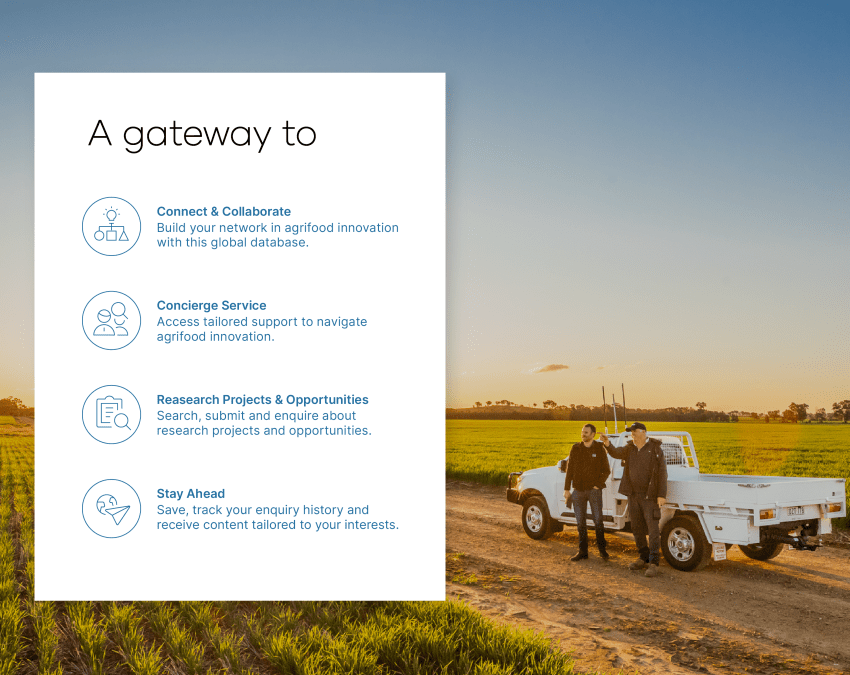
From Queensland to Germany: A global partnership to drive bioeconomy innovation
A German-Queensland science program is set to nurture innovator and researcher networks. Grants of up to $250,000 are available to Queensland research organisations and partners to work together with German counterparts to co-develop bioeconomy solutions.
-crop-1185x680.png)
 Judy Kennedy
Photographer
Jessica Howard
Date
24 May 2023
Share
Judy Kennedy
Photographer
Jessica Howard
Date
24 May 2023
Share
- Share via Facebook: From Queensland to Germany: A global partnership to drive bioeconomy innovation
- Share via LinkedIn: From Queensland to Germany: A global partnership to drive bioeconomy innovation
- Share via Twitter: From Queensland to Germany: A global partnership to drive bioeconomy innovation
- Share via E-mail: From Queensland to Germany: A global partnership to drive bioeconomy innovation
Related tags
Collaborative programs designed to foster innovation and new technology between groups in Australia and Germany are growing and offering new opportunities for Australian universities, research institutions and tech companies.
Germany and Queensland have been dubbed bioeconomy powerhouses – with world-leading renewable biological resources to produce food, energy and industrial goods.
To harness the industry opportunities and foster networks of innovators and researchers between the two leaders, the Queensland-Germany Bioeconomy Collaborative Science Program was launched in May 2022.
This initiative follows the creation of a German-Australian ZIM network lead by T+I Consult in Germany and UQ in Queensland. The ZIM network can support Australian industry and researchers to find matching partners in Germany. growAG. anticipate sharing new opportunities in this space over the coming months.
This latest initiative is the product of collaboration between the German Ministry of Education and Research (BMBF) and Queensland’s Department of Environment and Science (DES).
Grants of up to A$250,000 over three years are available to Queensland research organisations through DES. German project partners are also eligible to receive up to €500,000 from BMBF, under the German application process.
Queensland-based applicants must demonstrate a commitment to undertake the proposed project with a German research organisation with one or more industry partners involved. The Australian research project must find partner contribution of at least A$150,000 from industry to support their project.
-(1680-×-800px)-width-1680.png)
Queensland research institutions planning to submit applications are able to list their project idea and call for industry partners to join their proposal on growAG..
Email the growAG. team at [email protected], to explore discuss this opportunity.
Funding must support practical and applied collaborative science and research projects in the following target areas:
- Materials – development or advancement of technologies for production of value-added products from sustainably sourced biomass, including but not limited to biotechnology, synthetic biology, and precision fermentation
- Sustainable agriculture – development or advancement of processes for the increased and sustainable production of agricultural products, which may include precision, smart and digital agriculture where there are clearly identifiable bioeconomy outcomes
- Food (waste) – innovations to support sustainable and resilient food systems focused on reducing or reusing wastes, to enhance and improve circularity.
Applications for the Queensland-Germany Bioeconomy Collaborative Science Program are open until 1pm (AEST) Tuesday, 20 June 2023.
To submit proposals or to learn more head to the website here.
Explore, find and connect with a wealth of research projects and innovation opportunities from across Australia’s agrifood innovation system here. To list a research project, commercialisation opportunity or organisation, please visit growag.com/submit.
Related highlights
Explore all highlights-crop-850x675.png)
Looking for engagement?
Showcase your commercialisation opportunity today.
Talk to our team to discuss how growAG. can connect your innovation to industry.
Have questions? Find answers to our most frequently asked questions on research projects, commercial opportunities, organisations and more.


-crop-770x475.png)
-crop-770x475.png)
-crop-770x475.png)